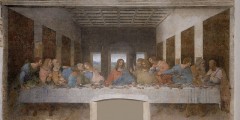Posts by Stephen Mumford
History and Politics
October 24, 2012
Earlier this month I attended the inaugural lecture of Celeste-Marie Bernier, a new professor at Nottingham’s Department of American and Canadian Studies. The lecture explored images of slavery, showing how the masters depicted their slaves one way while slaves and former slaves tried to tell a different story when they had the rare opportunity to be …
Riefenstahl’s Olympia
July 5, 2012
Can art be beautiful even though it’s wrong or would its wrongness destroy its beauty? This rather abstract question of contemporary aesthetics is made concrete in the example of filmmaker Leni Riefenstahl’s work. Riefenstahl was revolutionary, pioneering in the 1930s a number of cinematographic innovations. She used unusual angles on her subjects; she distorted the …
The Olympic Flame
May 18, 2012
Today (18th May) sees the Olympic torch arrive in the UK, having begun its journey in Greece eight days ago. It is to be carried through 1,019 places the length and breadth of the UK before arriving in the Olympic Stadium. It was the Nazis who began this tradition for the 1936 games, harking back …
Moral Reflection and Danish Cinema
May 1, 2012
Films are capable of producing all variety of responses from their viewers. When they give us an insight into other people’s lives, real or fictional, they are particularly good at provoking empathy. Perhaps the immediacy of seeing someone’s face, be it only an actor, allows us to identify with the character and reflect on their …



